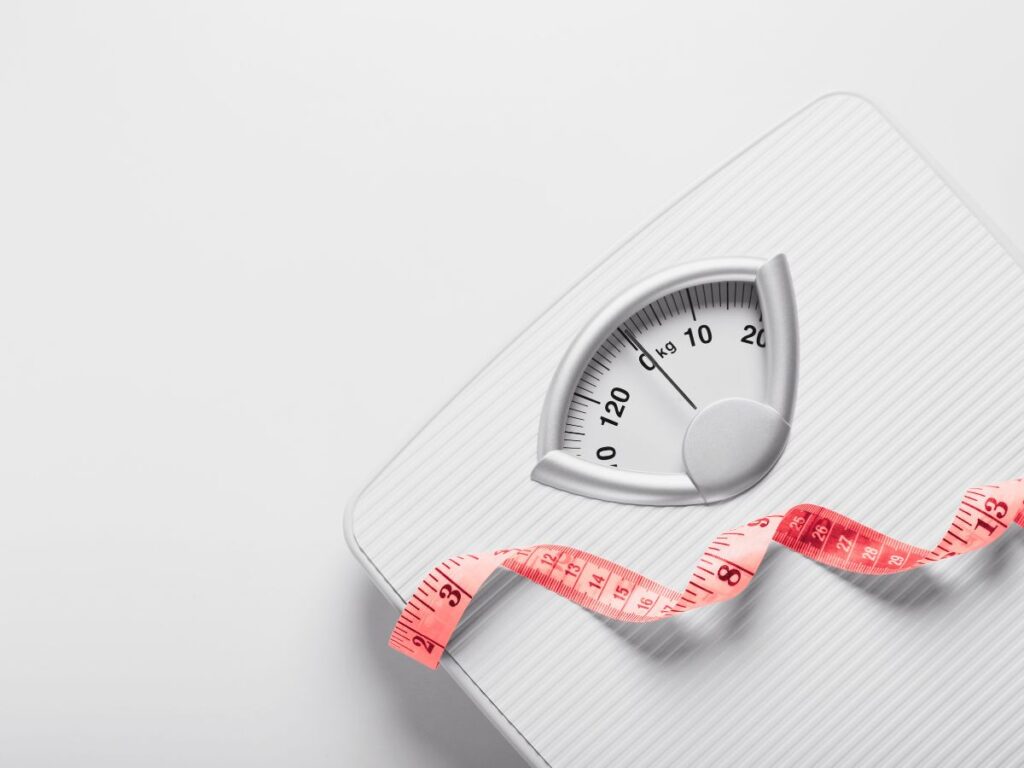
Before I begin, this blog post isn’t about judging anyone’s body size or pushing the idea that slim is better. I’m not here to shame or celebrate. Our bodies change as we age, often in ways we didn’t expect and understanding why this happens is empowering. This post is about shedding light on the shifts in weight and body changes that many women experience in midlife and what those can mean for our health. I’m all about feeling good, staying strong and making informed choices that support our wellbeing and longevity.
My Own Midriff Interrupted
I’ll be completely honest, for most of the last year (okay, maybe two), I’ve been a bit indulgent when it has come to my diet. Often finishing the day with ½ a bar of Tony’s Chocolonely – its just so lovely, right? And its been a reward as I navigated some of the more challenging days of my cancer treatment (Tony’s seems to have been a loyal companion as I recovered too!)
As I veered towards spring (and now summer), I realised the indulgence had grown with various get togethers, celebrations, dinners and cheese, lots of cheese (as well as the chocolate!). It had got out of control. And even though I was active, exercising up to 5 times a week, I was spilling out of the jeans which I had thought were a stop gap before I got back to ‘normal’. And I just felt uncomfortable. I was left thinking ‘where has this stomach come from?’
In the past, if I was ever worried about an extra few pounds, I was able to skip a few meals, stop the crisps and chocolate and bingo – back to the size I wanted in almost no time at all. Not healthy, I know. But effective. Or at least it used to be – now, as soon as I even think about dieting it feels like the weight piles on.
The weight had gathered around my stomach and thighs, like it never used to. A middle aged spread and I’m not alone, lots of my friends say the same. So I explored why…
Why Do We Put Weight On in Midlife?
Turns out, it’s not just willpower. It’s a perfect storm of hormonal, metabolic, and lifestyle changes — most of which trace back to one major player: oestrogen.
And in my case? Hormone-blocking medication post-cancer treatment adds to the challenge. (It comes with the helpful side effect of “may change appetite” — no kidding!)
01
Hormonal changes – I’ve already mentioned that I believe this is one of the biggest factors. Lower oestrogen levels during peri/menopause means more fat gathers around the abdomen. Plus, lower oestrogen can lead to insulin resistance — making it harder for the body to regulate blood sugar and increasing fat storage.
02
Slower metabolism & loss of muscle mass – as we age, our metabolism slows which means the body burns fewer calories at rest, coupled with a reduction in muscle mass (which helps burn calories) and if we continue eating more calorific, sugary food, it can make it easier to gain weight.
03
Changes in Appetite and Eating Habits – Hormonal shifts and stress can also affect appetite-regulating hormones, such as ghrelin and leptin, making it harder to feel full and leading to overeating. Additionally, emotional eating or using food as comfort during stressful times can add extra calories to the daily intake (see above re Tony’s!).
04
Stress and cortisol – its near on impossible not to be impacted by some sort of stress in midlife (career, family, illness – or a combo of them all!), and with stress comes a flood of cortisol – elevated levels are linked to fat storage in the abdomen.
05
Sleep disruption – hormonal changes can affect sleep, it can result in increased appetite and calorie intake as we crave sugary, high calorie food. And for me, after a crappy sleep most mornings I reach for the caffeine – potentially spiking cortisol!
06
Reduced Activity – Pain, fatigue, or just a busy life might lower activity levels. I’m still quite active, but it hasn’t been enough to cancel out everything else.
It’s Not About Size — It’s About Health
Weight gain in midlife isn’t just frustrating — it can affect long-term health. Carrying extra weight increases the risk of heart disease, type 2 diabetes, stroke, and some cancers.
Even though I wouldn’t describe myself as overweight, I decided it was time to make some sustainable changes.
What I’m Doing Now
This is what I’m trying:
✅ Whole Foods Focus
More unprocessed foods and protein, fewer refined carbs and sugars. I calculated my calories and macros to create a meal plan (with a little help from Chat GPT) — but I know that’s not for everyone. Switching out ultra processed foods alone can be really beneficial.
✅ More Water
1.5 to 2 litres a day. It sounds simple, but wow is it hard! I’m retraining myself to drink more but not need the loo more!
✅ Exercise That Balances
Running is my therapy, but I’m also lifting weights 2–3 times a week to build muscle and rev up metabolism. I’ve added reformer Pilates too (if only it weren’t so expensive!).
✅ Managing Stress
This one is also tough. I run, journal, and I’m slowly getting into mindfulness and breathwork. Still learning.
✅ Self-Kindness and Patience
I remind myself: “You didn’t gain it in a day, you won’t lose it in a day.” Consistency matters. So does kindness.
I’m not chasing a number on the scale. I’m working on feeling stronger, sleeping better, and future-proofing my health. Healthy doesn’t have to mean boring, bland food either – I’ve discovered my new, healthier indulgence – Apple with peanut butter. If you haven’t tried it you must!

💬 I’d love to hear what’s worked for you. What changes have helped you feel more comfortable in your body lately?
